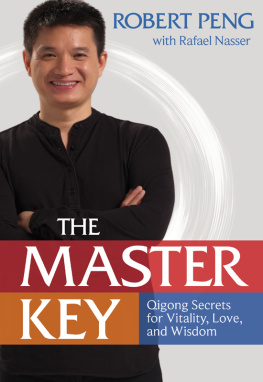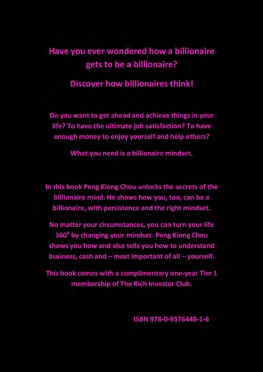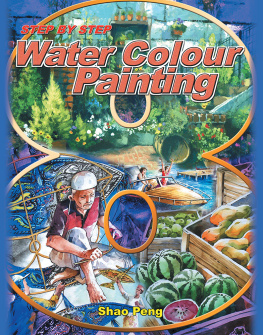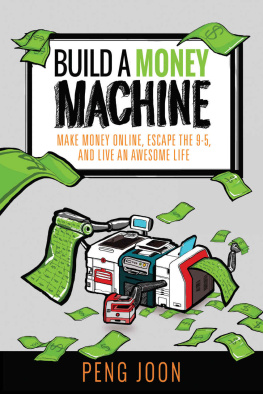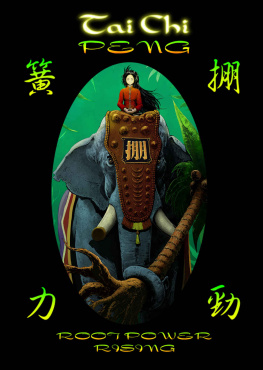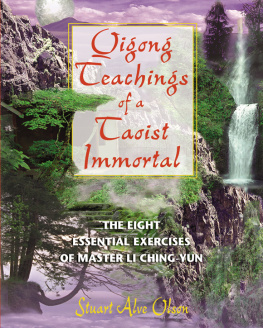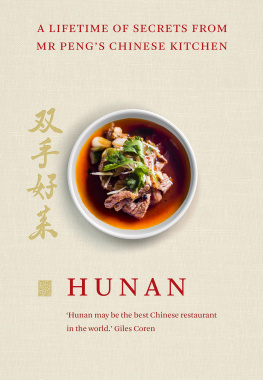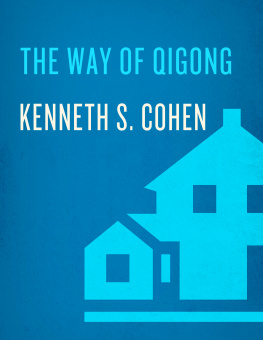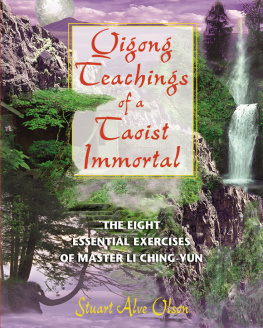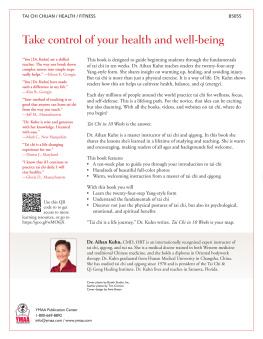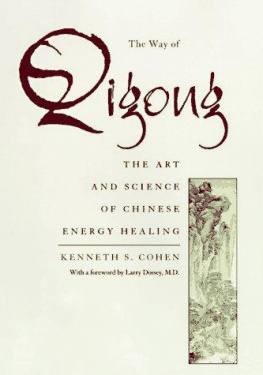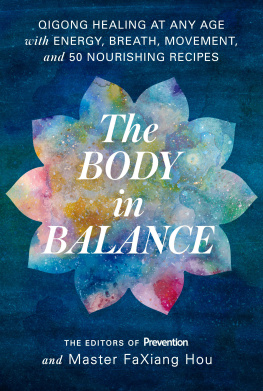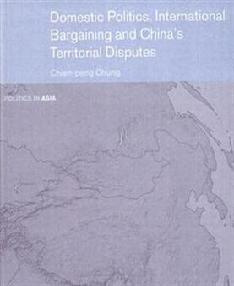
Dedicated to my master, Xiao Yao (18891985)
Contents
Companion Videos Guide
Samples of instructional videos are available online as companions to the following exercises. View them at SoundsTrue.com/MasterKeyExercises.
VIDEO 1
VIDEO 2
VIDEO 3
VIDEO 4
VIDEO 5
VIDEO 6
VIDEO 7
VIDEO 8
VIDEO 9
Introduction
I met my spiritual master, Xiao Yao (shao-yaow), when I was an eight-year-old boy suffering from a heart condition. As far as I could tell, he was simply a kind man who recounted colorful Chinese folktales with great animation. He brought mythological characters like the Monkey King to life, mimicking their gestures and voices with comical theatrical flair, transforming my world into an enchanted realm full of mystery and magic. I loved all the stories he told me, but as I look on our adventures, I now realize that none of them compare to the tale of the journey we shared.
Through my youthful eyes Xiao Yao looked like an ordinary man, although in actuality, he was a high-ranking Buddhist monk who possessed extraordinary spiritual powers that rivaled those described in his epic stories. He had spent most of his life meditating and praying in a peaceful monastery perched high up in the misty peaks of Hunan Province in China. Then, one day, the world around him was suddenly uprooted.
The Cultural Revolution swept across China in 1966 like wildfire, and within a few chaotic months the country changed in radical ways. Religion was outlawed and religious institutions were disbanded. Overnight, Xiao Yaos life was turned upside down. He relocated to Xiangtan, my hometown, two blocks away from where my family lived. There he took on a lowly, menial job. Eventually, our destinies intertwined and he began to delight me with his stories.
In those days people didnt disclose much information about their past, especially if they had held significant positions that were no longer deemed socially acceptable. Since I didnt realize who my new friend really was, I had no way of knowing that while Xiao Yao the storyteller was entertaining me with his tales, Xiao Yao the healer was quietly curing my heart condition with his extraordinary healing powers. All I knew was that I liked this kind man who made me feel good.
One day Xiao Yao offered to teach me martial arts and guide me in my spiritual development. I accepted without hesitation. This was a dangerous proposition given the political climate, so I became his secret disciple, and I spent the next thirteen years studying a system called Dan Ming Qigong, which translates as Elixir Light Qigong. This system includes Daoist, Buddhist, and Shaolin practices intended to develop the body, mind, and spirit.
The word Qigong (pronounced chee-gung and sometimes spelled Chi Kung) is made up of two Chinese characters: Qi and gong. Qi refers to our Life Force, an invisible but discernible type of energy that permeates our bodies, much like an electromagnetic field, and powers our vital functions. We all have both high energy days and low energy days and the difference between them depends on the quality of our Qi. The second word, gong, means work or practice.
Qigong, then, is the science of cultivating our Life Force through specific practices as well as the art of applying this energy in the service of the Dao, or the greater good. When we practice Qigong, every day can become a good day.
Xiao Yao embodied the benefits of Qigong. He constantly radiated an aura of happiness and peace that enriched the lives of everyone he touched. From the first moment I met him to the last time I saw him, he exuded this sparkling quality with unwavering ease.
By all reasonable accounts he should not have been a happy man, certainly not when we first met. Xiao Yao was then eighty-two years old. He had lost all the privileges, status, and authority associated with his former rank as a senior monk. He was working at an undesirable job seven days a week under meager conditions with no hope of advancement. He had lost contact with his former colleagues and disciples, and had no family or living relatives.
How did he maintain his boundless, positive well-being?
Xiao Yao used to say that we are all like beggars begging for scraps with a golden begging bowlmeaning that each one of us can access a priceless treasure that lies within reach of our fingertips. We simply dont realize it. The treasure my master was referring to is happiness.
Weve all tasted happiness, that magical sense of well-being that arises when we come into harmonious alignment with the universe for no apparent reason. At these times we seek nothing, desire nothing, expect nothing, and want nothing. We are perfectly poised in the present moment. The mind is still. The heart is open. The body is calm. Life flows.
This state of contentment may last a minute, an hour, or a day, but then something jars us and the feeling flutters away like a little bird startled by a footstep. For most of us, happiness is a beautiful but fragile condition over which we have no control.
When we lose our happiness, we devise all sorts of strategies to recover it. We fill our begging bowls with more money, more fame, more pleasure, and more worldly success, only to find ourselves moving further away from our goal of being happy. But it is never too late to discover the authentic happiness that lies hidden within.
Picture yourself sitting in front of a treasure chest with a big padlock. From the outside, it looks like a wooden box with a rusty lock, the kind you might see in a pirate movie. You try to pry it open, but the box is sturdy and the lock is stubborn, and even with a lot of effort you cant make progress. If you only possessed the right key, you would easily open it and gain access to invaluable wealth.
In fact, this vision describes the human condition. Inside you lies a priceless treasure. I was fortunate. Xiao Yao gave me the master key to unlock my spiritual wealth. He called this key the Four Golden Wheels. When you access the Four Golden Wheels, you are blessed with spiritual abundance.
These words sound nice, but what exactly do they mean in practical terms? What is spiritual wealth?
Imagine two distinct job offers coming in at the same time. Both sound equally good. Which one should you accept? You argue in favor of one offer convincingly, and then, the next minute, you argue in favor of the other with equal conviction. You could ask a friend for an opinion. However, his or her perspective may be no better informed than yours. Some dilemmas cant be resolved rationally. Logic has limits. But there is a quality that arises in human consciousness that allows us to manage muddled situations such as this one: wisdom. If you are able to mobilize your capacity for wisdom, youll be naturally guided to the right choice without knowing exactly why. Over a lifetime, wisdom translates into the difference between a series of blessings and a string of bad choices that lead to regret. How much value should we place on wisdom? We cant; wisdom is a priceless treasure that lies within.
Now turn your attention to the most sensitive spot of your bodyyour heart. This organ pumps blood all day long and nourishes every cell with life-giving oxygen. But the heart does more than feed the flesh. Recall a tender moment filled with love. Where did you sense that experience? Not in your head. Not in your foot. Somewhere in the middle of your chest, in the area around your heart. Love and the heart are intimately connected. And what happens to a heart unable to express love? Imagine someone you dearly care for walking up to you and saying, I love you. But instead of repeating those words, your chest tightens and your heart contracts. You cant express the warmth you feel inside. Such a heart shatters easily, like glass, or hardens and numbs like unfeeling stone. Both of those conditions are symptoms of an impoverished heart.
Next page
